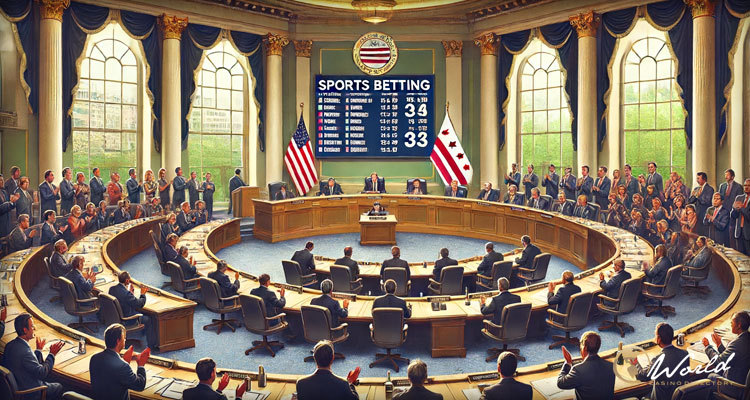Washington, D.C.’s fiscal year budget for 2025 has received the nod from the Council, heralding significant changes in the realm of sports betting within the District. In a unanimous decision, council members paved the way for an overhaul of the current sports betting framework, effectively ending the longstanding monopoly that has dominated the market for over four years.
Breaking the monopoly: a landmark decision:
The approved budget, slated to take effect on July 15, signals a groundbreaking shift in the District’s approach to sports wagering. Under the new provisions, additional sports betting operators will be permitted to operate within Washington, D.C., marking the end of an era dominated by a single online sports betting app.
Council Chair Phil Mendelson spearheaded the inclusion of language from Council Member Kenyan McDuffie’s Sports Wagering Amendment Act of 2024 directly into the budget—a move that raised eyebrows but ultimately garnered widespread support. Despite objections from some council members, Mendelson defended the decision, citing the importance of fostering competition in the sports betting arena.
The District’s sports betting landscape has long been characterized by its singular operator, Intralot, which launched the GambetDC app in May 2020. However, the app’s lackluster performance led to its demise earlier this year, paving the way for a new partnership with FanDuel. Now, with the impending expiration of Intralot’s contract, the stage is set for a more diverse and competitive market.
Central to the budget’s provisions is the introduction of Type-C licenses, which will enable sports franchises in the District to forge partnerships with online sports betting operators. These licenses, available to franchises with a significant presence in the District, aim to foster collaboration between sports teams and the burgeoning sports betting industry.
According to Sports Betting Dime, among the eligible franchises are household names such as DC United, Washington Nationals, and Washington Wizards, along with iconic venues like Audi Field and Nationals Park. The allocation of Type-C licenses promises to inject new life into the District’s sports scene while redefining the relationship between sports and gambling.
Taxation and regulation: striking a balance:
The budget outlines a comprehensive taxation framework for Type-C license holders, with a tax rate of 30% applied to gross gaming revenue. Additionally, the acquisition cost for a Type-C license is set at $2 million for a five-year term, accompanied by a $1 million renewal fee thereafter. Furthermore, retail sports betting license holders (Type-A) will see an increase in their tax rate from 10% to 20% of gross gaming revenue.
While the budget’s approval marks a significant milestone, it was not without its share of controversy. Council Member Zachary Ward’s attempt to strip the sports betting language from the document sparked heated debate, with concerns raised about bypassing the standard regulatory process. However, the amendment was ultimately defeated, underscoring the Council’s commitment to advancing the expansion of the sports betting market.
As the budget undergoes further scrutiny in the coming weeks, all eyes are on the Mayor’s office for final approval. With the stage set for a more dynamic and competitive sports betting landscape, Washington, D.C. is poised to emerge as a frontrunner in the evolving world of online wagering.



